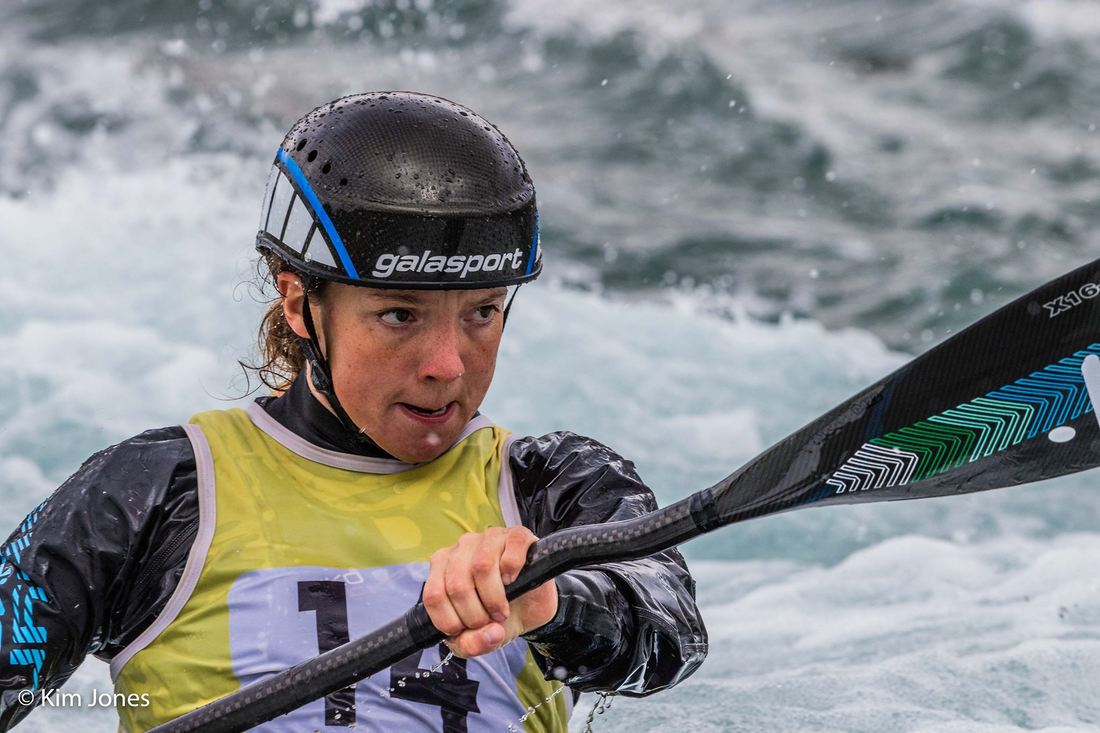I love going into winter training - because right at the start, I always have a list of things that I want to have improved or mastered by the end of the winter. It comes with challenging conditions - getting 'better at racing' is extremely tough to simulate in a blizzard with ten paddlers and one stopwatch. I've actually learned over the last three years, that prioritising and preparing for your sessions in this environment is almost as important as the actual session. Being comfortable, nourished and having proper equipment are the bare essentials to this kind of training block. Having a strong training group who prioritise the session over the rest of their day is also essential. This is a pretty difficult situation to come by - especially because a slalom squad is a lot of individual sport athletes, having to function productively together as a team.
What is pretty awesome as a senior athlete, is seeing junior athletes you have trained with for years in 'different' focus groups, stepping up their standards to participate as senior members. Currently at Pinkston Watersports, we are productive and efficient: everyone builds the courses, everyone times one another, we share and work together with what we're learning. There are nearly eight years between the youngest and the oldest paddler.
Strategically, we all have different goals for the end of winter training. The racing experience between paddlers is vastly different, and so are the performance criteria going into 2018 selection series. But a whole group of people who love being on the water, and are applying the same level of concentration and effort to each session, produces feedback that everyone can identify with and learn from.
I want to spend this winter taking a step back to the basics. I've had an awesome summer, learning on some of the hardest and most technically challenging courses in the world. For the winter, I want to focus on basic sequences and simple stroke patterns. Because while I technically refine and solidify basic practise, I want to step up on my physical and mental preparation. Those are probably two of the hardest areas of sport to work on at the same time - a tired brain is not always a cooperative one. But I learned a lot over the last three years about regeneration and focus. You absolutely cannot focus constantly. But you can learn to allow attention to deviate less and less from the task at hand, until you realise that you've spent 100% of your time focussing on yourself. Which is one of the reasons resting your brain is so important - you wouldn't expect your body to run a marathon if you've been constantly jogging for a week!
Getting physically stronger for me is surprisingly simple. People do invent a lot of ways to improve specific areas of fitness and strength. I think it's quite easy to over complicate. I love strength and conditioning, because I enjoy weightlifting, but I think this kind of preparation is very specific to the individual. I want to do a lot of aerobic sessions for the first part of my winter block, to create a baseline of fitness for the really tough months in January and February. In slalom we often talk about 'training to train'. Our races are around 110 seconds of highly intense effort. In running and swimming this could mean a lot of anaerobic interval training, VO2 sessions and high intensity endurance. But because our sport is so technical, we need to spend a lot of time on the water doing hours of high intensity bursts of activity. Which you actually need to be incredibly fit for - so finally, it pays to have a long block of aerobic endurance under your belt, to be able to cope with the length of our technical sessions.
So looking out the window at twelve degrees and Scottish drizzle, I'm excited firstly for a bit of brain regeneration - and then to get stuck in to what we've planned for the next five months!

 RSS Feed
RSS Feed
